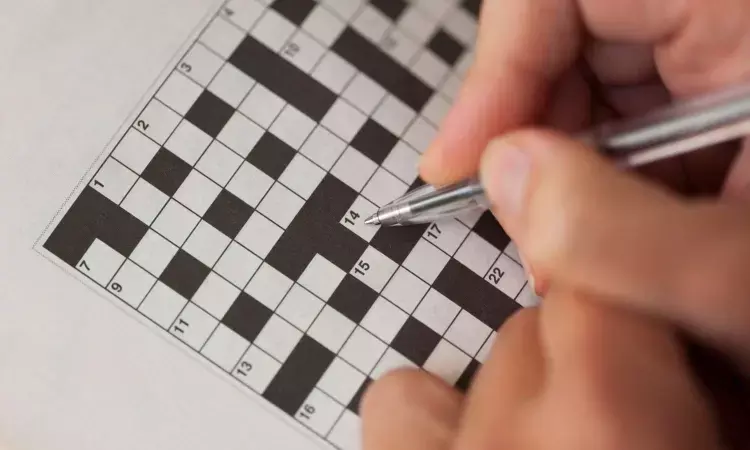- Home
- Medical news & Guidelines
- Anesthesiology
- Cardiology and CTVS
- Critical Care
- Dentistry
- Dermatology
- Diabetes and Endocrinology
- ENT
- Gastroenterology
- Medicine
- Nephrology
- Neurology
- Obstretics-Gynaecology
- Oncology
- Ophthalmology
- Orthopaedics
- Pediatrics-Neonatology
- Psychiatry
- Pulmonology
- Radiology
- Surgery
- Urology
- Laboratory Medicine
- Diet
- Nursing
- Paramedical
- Physiotherapy
- Health news
- Fact Check
- Bone Health Fact Check
- Brain Health Fact Check
- Cancer Related Fact Check
- Child Care Fact Check
- Dental and oral health fact check
- Diabetes and metabolic health fact check
- Diet and Nutrition Fact Check
- Eye and ENT Care Fact Check
- Fitness fact check
- Gut health fact check
- Heart health fact check
- Kidney health fact check
- Medical education fact check
- Men's health fact check
- Respiratory fact check
- Skin and hair care fact check
- Vaccine and Immunization fact check
- Women's health fact check
- AYUSH
- State News
- Andaman and Nicobar Islands
- Andhra Pradesh
- Arunachal Pradesh
- Assam
- Bihar
- Chandigarh
- Chattisgarh
- Dadra and Nagar Haveli
- Daman and Diu
- Delhi
- Goa
- Gujarat
- Haryana
- Himachal Pradesh
- Jammu & Kashmir
- Jharkhand
- Karnataka
- Kerala
- Ladakh
- Lakshadweep
- Madhya Pradesh
- Maharashtra
- Manipur
- Meghalaya
- Mizoram
- Nagaland
- Odisha
- Puducherry
- Punjab
- Rajasthan
- Sikkim
- Tamil Nadu
- Telangana
- Tripura
- Uttar Pradesh
- Uttrakhand
- West Bengal
- Medical Education
- Industry
Crossword puzzles best computer video games in halting memory decline among elderly

Crossword puzzles are widely used but have not been studied systematically in mild cognitive impairment, which is associated with high risk for dementia, including Alzheimer's disease.
Dr D.P. Devanand, MD, professor of psychiatry and neurology at Columbia, with Murali Doraiswamy, MD, professor of psychiatry and medicine at Duke and researchers conducted a randomized, controlled trial and found that participants (average age 71) trained in doing web-based crossword puzzles demonstrated greater cognitive improvement than those who were trained on cognitive video games.
"This is the first study to document both short-term and longer-term benefits for home-based crossword puzzles training compared to another intervention," said Dr. Devanand, who oversees brain aging and mental health research at Columbia. "The results are important in light of difficulty in showing improvement with interventions in mild cognitive impairment."
To conduct their study, researchers at Columbia and Duke randomly assigned 107 participants with mild cognitive impairment (MCI) at the two different sites to either crossword puzzles training or cognitive games training with intensive training for 12 weeks followed by booster sessions up to 78 weeks. Both interventions were delivered via a computerized platform with weekly compliance monitoring.
The most striking findings of the trial were:
. Crossword puzzles were superior to cognitive games on the primary cognitive outcome measure, ADAS-Cog, at both 12 weeks and 78 weeks. Crossword puzzles were superior on FAQ, a measure of daily functioning, at 78 weeks.
. Crossword puzzles were superior for participants at a later disease stage but both forms of training were equally effective in an earlier stage.
. Brain shrinkage (measured with MRI) was less for crossword puzzles at 78 weeks.
"The benefits were seen not only in cognition but also in daily activities with indications of brain shrinkage on MRI that suggests that the effects are clinically meaningful," Dr. Devanand said.
The study also highlights the importance of engagement. Based on remote electronic monitoring of computer use, participants at a later stage of impairment may have better engaged with the more familiar crossword puzzles than with computerized cognitive games.
Two strengths of the trial are the 28% participation rate of individuals from racial and ethnic minority groups and the low drop-out rate (15%) for such a lengthy home-based trial. A study limitation was the absence of a control group that did not receive cognitive training.
While these results are highly encouraging, the authors stress the need for replication in a larger controlled trial with an inactive control group.
"The trifecta of improving cognition, function and neuroprotection is the Holy Grail for the field," said Dr. Doraiswamy. "Further research to scale brain training as a home-based digital therapeutic for delaying Alzheimer's should be a priority for the field."Crossword puzzles beat computer video games in slowing memory loss
Reference:
D. P. Devanand, Terry E. Goldberg, Min Qian, Sara N. Rushia, Joel R. Sneed, Howard F. Andrews, Izael Nino, Julia Phillips, Sierra T. Pence, Alexandra R. Linares, Caroline A. Hellegers, Andrew M. Michael, Nancy A. Kerner, Jeffrey R. Petrella, P. Murali Doraiswamy. Computerized Games versus Crosswords Training in Mild Cognitive Impairment. NEJM Evidence, 2022; DOI: 10.1056/EVIDoa2200121
Dr Kamal Kant Kohli-MBBS, DTCD- a chest specialist with more than 30 years of practice and a flair for writing clinical articles, Dr Kamal Kant Kohli joined Medical Dialogues as a Chief Editor of Medical News. Besides writing articles, as an editor, he proofreads and verifies all the medical content published on Medical Dialogues including those coming from journals, studies,medical conferences,guidelines etc. Email: drkohli@medicaldialogues.in. Contact no. 011-43720751


